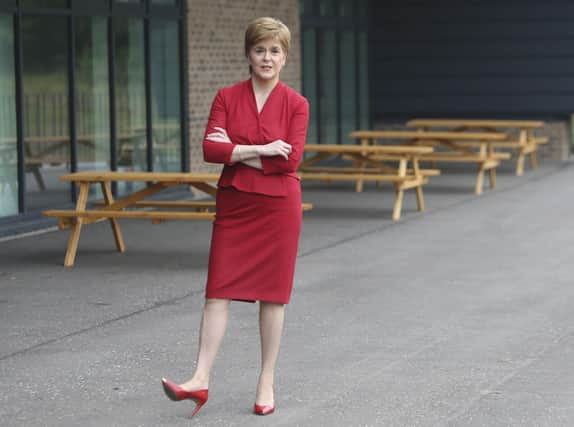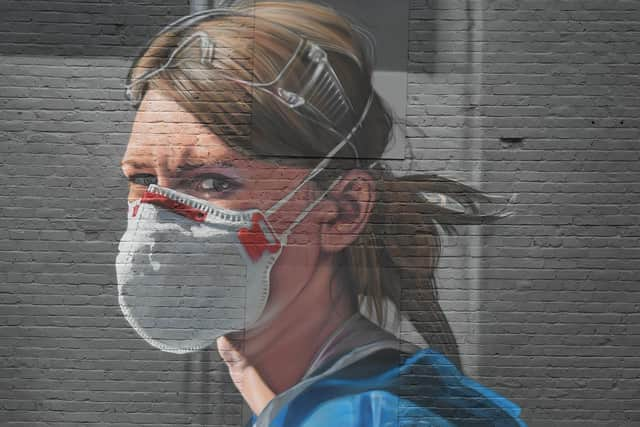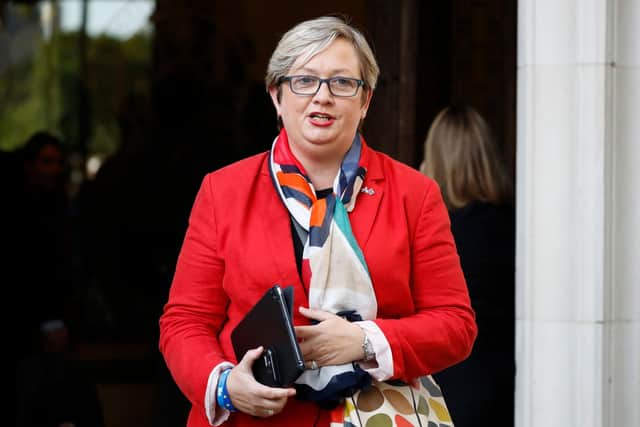Why Nicola Sturgeon is starting to look vulnerable - Euan McColm


So, when First Minister Nicola Sturgeon announced during her speech at the SNP’s conference last week that the Scottish Government planned to give full-time NHS and adult social care staff a £500 bonus (with a proportional bonus for part-timers), it was hardly surprising that the reaction was generally positive. During the pandemic, health service and care workers have, in many instances, gone above and beyond. Who would begrudge them this payment?
Unfortunately for the First Minister, this act of state-sponsored largesse soon began to look rather grubby. Sturgeon demanded that Prime Minister Boris Johnson step in to ensure this bonus was not taxed. NHS workers should receive the full 500 quid, she insisted.
Advertisement
Hide AdAdvertisement
Hide AdWhen, inevitably, the UK government responded in the negative to this demand, the SNP had achieved its objective of creating another tiresome row with Westminster. The Nats’ exhausting leader in the House of Commons, Ian Blackford, declared the refusal of the Treasury to accede to the First Minister’s demands as “appalling”.


The facts of the matter are straightforward. All income tax paid in Scotland is returned to the Scottish Government. Therefore, if the SNP truly wished to see NHS staff receive the full £500, it could simply gross-up the number and that extra money would return to their coffers.
It quickly became apparent that the First Minister’s true objective was to create a row in which she could paint the UK government as uniquely immoral. Sturgeon was not thanking staff, she was using them for her own political gain.
It is interesting to note that the SNP attacks on the UK government over this issue quickly fizzled out. Voters are not as stupid as Sturgeon thought. Her wheeze was transparent and all but the most monomaniacally loyal could see precisely what she was playing at.
She may generally be considered a clever political operator, but her handling of this matter was as amateurish as it was cynical. Perhaps we can put this political misstep down to the pressure now mounting on the First Minister from within her own party.


Probably the most significant aspect of the SNP conference was the outcome of elections to the party’s National Executive Committee, the body which oversees the organisation of the party and – in theory, at least – drives its national policy strategy.
The NEC is now composed of people who, in many instances, are far from being fully aligned with the Sturgeon approach to a range of matters, including the way in which independence might be achieved.
The positions of women’s and qualities convenors are now held by critics of the leader’s plan to reform the Gender Recognition Act to make it easier for trans people to formally change gender, while the MP Neale Hanvey, previously suspended by the party for antisemitic social media posts, is now a member of the SNP’s conduct committee.
Advertisement
Hide AdAdvertisement
Hide AdBut the most significant result of these elections is that Sturgeon’s most vocal critic within the party, Joanna Cherry MP, has secured a seat on the NEC. Those who pay especially close attention to the internal machinations of the SNP may recall that the NEC recently scuppered Cherry’s bid to stand for Holyrood by rewriting the rulebook so that her candidacy became impossible. It will be interesting to see how Cherry uses her newly-secured influence.
She is among a number of newly-elected NEC members who do not share the First Minister’s view that the only way independence can be achieved is through a referendum run with the permission of the UK government. She and what looks awfully like a majority of NEC members want to see a Plan B on the table and Sturgeon cannot continue to ignore their demands.
Sturgeon is not used to having her authority challenged. She should get used to the idea.
If, as seems perfectly likely, there is a majority of pro-independence MSPs at Holyrood after next May’s elections, Sturgeon will tell Johnson that she has a mandate for a second independence referendum. He will respond by refusing to sign the necessary order to grant her the right to hold one and will remind her that, in 2014, she insisted a referendum was a once-in-a-generation event.
When this happens, Cherry and others will want to see more than the compliance of the First Minister. They will demand a radical new plan. These NEC members may, for example, urge Sturgeon to run a referendum without the blessing of the Prime Minister and then let the courts rule on its validity. Others may argue that a simple majority of pro-independence MSPs at Holyrood should be considered enough for the Scottish Government to initiate talks on secession.
So, it’s not been the greatest week of Sturgeon’s political life. Exposed for using NHS and care workers as political pawns and exposed to the threat of a new and more radical SNP governing body, the First Minister looks more vulnerable than she has since taking office.
Of course, Sturgeon will lead her party to victory in May’s elections – but that success will only intensify the demands from her critics that she change course in her quest to break up the United Kingdom.
Comments
Want to join the conversation? Please or to comment on this article.